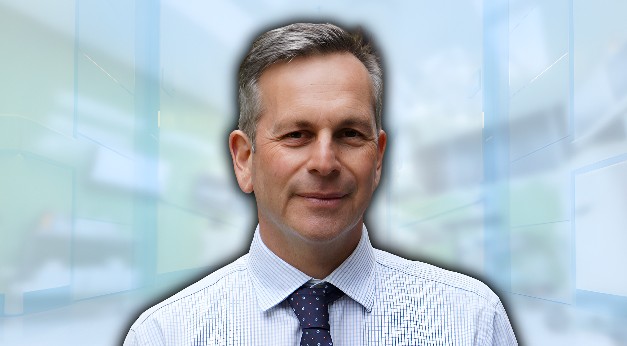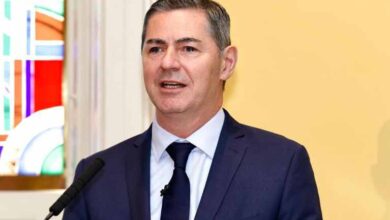Daniel Elkeles: Transforming NHS Leadership with Vision, Experience, and People-First Strategy

Daniel Elkeles is a name now synonymous with effective NHS leadership in the UK. With close to three decades of service in the National Health Service, he has carved a reputation for being a forward-thinking and pragmatic leader who understands both the operational intricacies and human complexities of running large healthcare organisations. His career, marked by strategic transformation, cultural change, and unwavering commitment to public service, offers critical insights into what strong leadership looks like in modern-day healthcare.
In 2025, Elkeles stepped into his most high-profile role yet — as Chief Executive of NHS Providers. The organisation represents every NHS hospital, mental health, community, and ambulance service trust in England. This transition marked a pivotal moment, not just in Elkeles’ career, but for the entire NHS trust sector, which faces mounting challenges including workforce retention, budget constraints, and the evolving health needs of the population.
Early NHS Career and Foundations of Leadership
Daniel Elkeles began his NHS journey with a solid grounding in healthcare policy and administration. Over the years, he has accumulated experience across various types of trusts, ranging from acute hospitals to ambulance and community services. What sets him apart is not merely the span of his roles but his ability to make lasting improvements in each setting.
His early leadership roles were marked by operational reforms and financial recovery in struggling trusts. Elkeles quickly earned recognition for his data-driven decision-making paired with a collaborative management approach. He does not believe in sweeping change for its own sake; rather, he aims for strategic evolution that brings tangible benefits to patients and staff alike.
Chief Executive at Epsom and St Helier University Hospitals NHS Trust
One of Elkeles’ most defining roles prior to his national appointment was at Epsom and St Helier University Hospitals NHS Trust, where he served as Chief Executive. The trust had faced challenges both financially and structurally before his arrival. Under Elkeles’ stewardship, the trust saw improvements in patient care outcomes, staff morale, and service integration.
He championed a holistic healthcare model that better aligned hospital and community services. Recognising that acute care is only one component of the healthcare system, Elkeles led initiatives to work closely with local GPs, mental health services, and social care providers. His forward-thinking initiatives included investment in diagnostic hubs and longer-term strategic plans for improving estate and infrastructure.
This phase of his career cemented his position as a leader who not only understands crisis management but also the long-term sustainability of healthcare institutions.
Transformational Leadership at London Ambulance Service
In 2021, Daniel Elkeles took over as Chief Executive of the London Ambulance Service (LAS), the busiest ambulance trust in the country. At that point, the LAS was facing severe staffing shortages, performance issues, and public trust concerns.
Elkeles immediately initiated a wide-ranging transformation programme. He tackled the chronic issue of response times by investing in recruitment and training, upgrading equipment, and redesigning dispatch algorithms to better reflect urgent care needs. These technical improvements were coupled with cultural reforms — notably in diversity, inclusion, and staff wellbeing.
One of his most lauded initiatives was a transparent communication model within the service. Elkeles engaged directly with paramedics, control room staff, and clinical leaders to foster a sense of shared mission. His ability to listen and act decisively created a renewed sense of unity in an overstretched workforce.
By the end of his tenure at LAS, response times had significantly improved, staff retention was on the rise, and patient satisfaction had reached its highest levels in years. The turnaround was viewed as a model of modern NHS leadership.
Appointment as Chief Executive of NHS Providers
In 2025, Daniel Elkeles was appointed Chief Executive of NHS Providers, succeeding Julian Hartley. NHS Providers plays a central role in representing NHS trusts to policymakers, shaping national strategy, and supporting leadership development across the sector.
His appointment was met with widespread praise. NHS chairs and chief executives cited his “deep understanding” of frontline delivery and his “unwavering commitment” to values of compassion, excellence, and equity.
Elkeles stepped into the role at a critical juncture. The NHS faced the twin pressures of post-pandemic recovery and ongoing transformation under the government’s 10-year plan. Key priorities included digital innovation, sustainability, workforce expansion, and delivering integrated care systems across England.
Vision for the Future of the NHS
Elkeles brings a clear-eyed vision to NHS Providers, focused on three central pillars: people, performance, and partnership.
1. People: He believes that workforce sustainability is the foundation for any form of healthcare improvement. His emphasis is not just on recruitment but also on retaining talent through better working conditions, mental health support, and career development opportunities.
2. Performance: Elkeles is a strong advocate for operational excellence. He pushes for using data and evidence to refine performance metrics without reducing healthcare to numbers alone. In his view, quality improvement should always reflect patient experience.
3. Partnership: Perhaps his most strategic focus is fostering partnerships across sectors — between hospitals and social care, mental health services and education, and trusts and local communities. He argues that the future of the NHS depends on its ability to act as a unified system rather than a loose federation of separate entities.
Style of Leadership
Those who have worked with Daniel Elkeles often describe his leadership style as “visible, approachable, and accountable.” He is not the sort of executive who leads from behind a desk. Instead, he is known to make regular visits to wards, clinics, and control rooms to speak directly with frontline staff.
Importantly, Elkeles leads with humility. He recognises the limitations of centralised decision-making and values the input of clinicians, administrative staff, and even patients in shaping better services. His belief in “servant leadership” — where the leader’s role is to serve and empower others — stands in sharp contrast to hierarchical models of management.
He is also a consistent voice for anti-racism and inclusion in the NHS. He has called for more diversity in leadership, equitable access to care, and the elimination of structural barriers within healthcare institutions.
Challenges and Opportunities Ahead
The role of Chief Executive at NHS Providers is not without challenges. Elkeles must navigate increasingly politicised debates over NHS funding, strike actions, and service delivery models. Moreover, the NHS is under pressure to deliver more with fewer resources, all while maintaining high standards of care.
However, Elkeles is well-placed to meet these challenges. His experience gives him credibility with both policymakers and practitioners. His reform credentials offer a pathway for modernising services without alienating frontline staff. And his focus on collaborative leadership means he is unlikely to be derailed by internal conflict or short-term distractions.
His long-term goal appears to be not just a more efficient NHS but a more humane one — where care is personal, services are integrated, and leadership is shared.
Conclusion
Daniel Elkeles stands at the crossroads of tradition and transformation within the NHS. His journey from local trust management to national leadership reflects a career defined by impact, innovation, and integrity. In an era where the NHS faces existential questions about sustainability, equity, and access, Elkeles offers not just competence but genuine hope.
He understands that the health of a nation cannot be measured merely by statistics or waiting times. It is reflected in the morale of its healthcare workers, the dignity of its patients, and the resilience of its institutions. Under Elkeles’ leadership, NHS Providers is poised to become not just a representative body, but a force for change — bridging the gap between policy and practice, and ensuring that the NHS remains a global symbol of compassionate, high-quality care.



